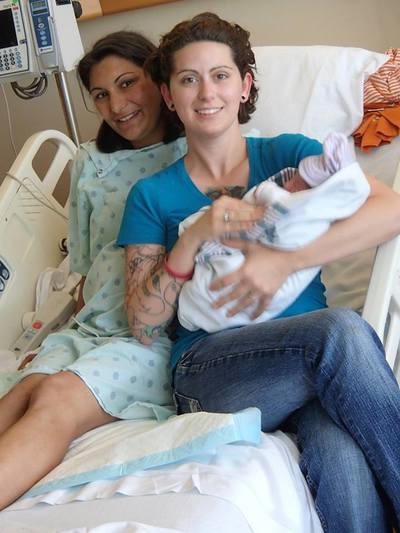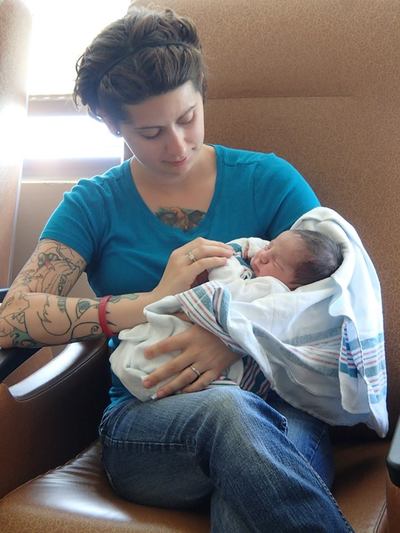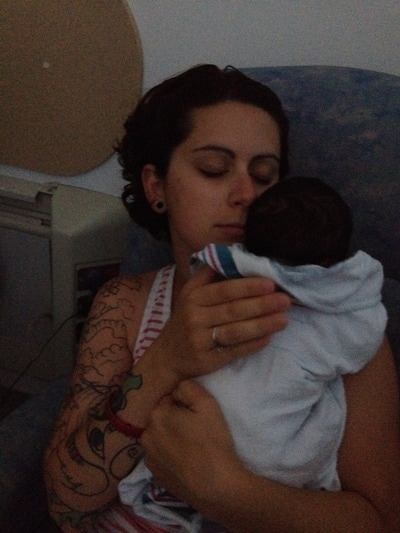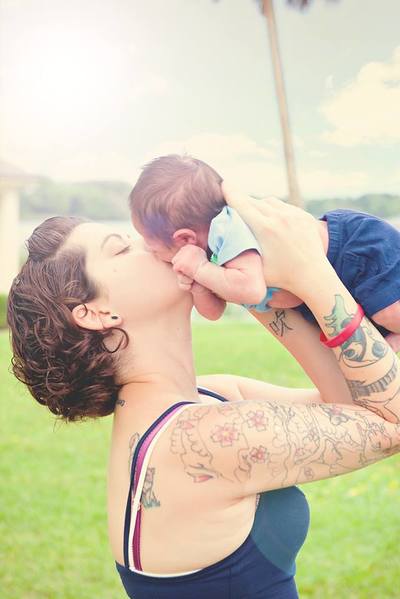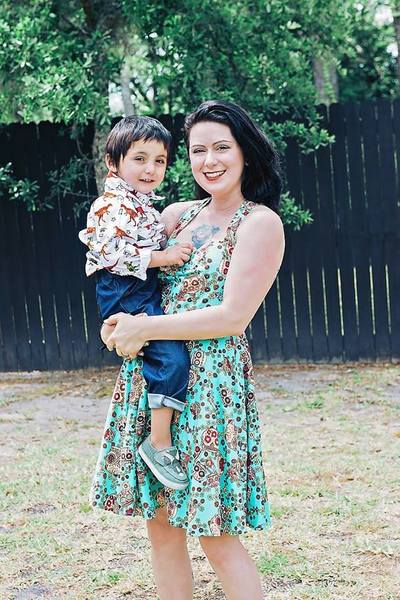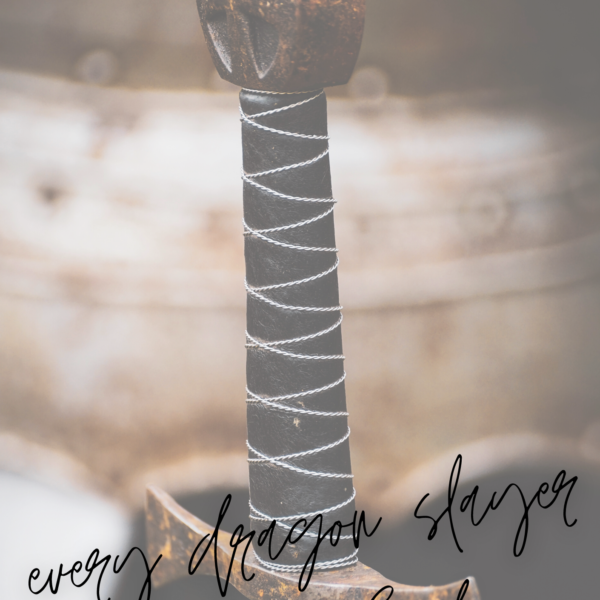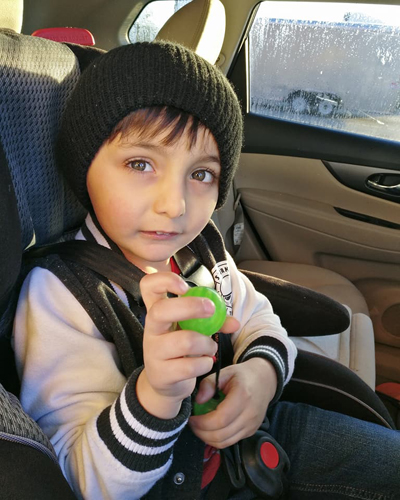As someone who has dealt with depression my entire life I love that depression, in all forms, is a subject that has come to light over the years. I love that people try to understand and have sympathy for many mental illnesses whereas in years past they didn’t. We’ve come leaps and bounds in the mental health realm, but in some ways we still have much farther to go.
I’m sure you’ve heard of postpartum depression. It’s commonly talked about and even shown in the media and entertainment industry. However, have you ever heard of post-adoption depression? It sounds ridiculous, right? Someone who spends months and years trying to have a baby, going through the sometimes difficult process, but then when they should be the happiest – when their holding their new baby, finally – something else starts creeping in.
I never knew this was a thing. I’d never heard about it. I never even thought this was something that was possible. Until it happened to me and I began researching. This is my first time ever opening up about this, I’ve told no one. There I was in the hospital room, holding my brand new baby boy, but it didn’t feel like I “thought” it should have felt. Maybe it was because of all the very mixed emotions that come with adopting.
We had three days, three whole days still where his birth mother could change her mind. 3 DAYS. In normal circumstances three days doesn’t seem like much at all, but when you’re holding that baby and you have the thought that all you’ve ever wanted – wrapped up in this tiny little baby that already has your heart – could be taken away just as fast as he was placed in your arms… your emotions go crazy. The first instinct is to try and protect yourself, just a little… if possible.
When I looked at his birth-mother my heart shattered. How could I be so happy (because, don’t get it twisted I was ecstatic in a sense – it just wasn’t complete) when her heart was going to break in order for my happiness? I felt a weird sense of guilt. I loved this baby more than I could express, but so did she.
The next week we spent what felt like endless hours at the hospital while GG was in the NICU. When we weren’t there we were taking turns calling to check on him. I held him and my love only grew. I rocked him and feed him and wanted so desperately to be able to bring him home. One week in the hospital then it was time. The day came when we brought our son (while still not legally “ours”) home. That’s when it began. A nagging feeling slowly crept up my spine. I was a horrible mother, i thought. Maybe that’s why God didn’t allow me to have children of my own. I didn’t feel like I was doing anything right. Was I really good for him? I didn’t feel like I’d always imagined parenthood to feel like.
I was the most doting mother, he was (and still is) my universe. However that deep connection that I expected wasn’t there. What was wrong with me? I had taken care of children my whole life it seemed, so how come, when it came to my own child — I didn’t have a clue what I was doing!?! I was angry with myself. How was I so good with other babies, but it didn’t seem like I was good enough for my own? When he cried I blamed myself. Why couldn’t I help him? The depression crept in and stayed. Stealing the deep joy that I should have been feeling. I still felt joy, but it was a shallow, barely scratching the surface joy. It wasn’t the deep elation that I had waited so long to feel.
That’s when I started trying to figure out what was going on. As I stated previously, I’ve dealt with depression my entire life. I know what it feels like, what it can make you feel, and I knew that it was causing this, I just didn’t know that it is fairly common in the adoption community. I spoke with my doctor and got a handle on things.
I feel like post-adoption depression is something that needs to be spotlighted. If I wouldn’t have experienced it myself I still wouldn’t even know about it. If I wasn’t aware of what depression feels like, I might not have gotten any help!
My son is my heart.
Adoptive parents need to know and understand that PAD(Syndrome) is a normal and even predictable crisis, and it does not reflect on an adoptive parent’s desire, willingness or ability to parent. Knowledge, preparation and support are all critical to surviving and moving past PAD(S).
Signs you might be experiencing PADS:
· Loss of interest or enjoyment in activities you used to enjoy
· Difficulty with concentrating or making decisions
· Fatigue or loss of energy
· Difficulty sleeping or increased need for sleep
· Significant weight change
· Excessive guilt
· Feelings of powerlessness
· Feelings of worthlessness
· Sense of hopelessness
· Irritability
· Suicidal thoughts or ideation
How to handle PADS:
- Take care of yourself – Self Care is incredibly important! Find some down time to engage in activities you enjoy. Make sure to eat right, exercise, rest, and get enough sleep.
- Remember you are not alone – Connect with other adoptive parents who are experiencing similar feelings and challenges.
Give yourself time to bond – Bonding and attachment can be a slow process, so be patient. - Ask for support and seek help – Do not be ashamed or afraid to ask friends and family members for help. For your benefit and the benefit of your child and family, seek professional assistance if needed.
- Keep in mind that the first several months after an adoptive placement are a transitional time for everyone in the family. Take it one day at a time, enjoy the positive moments, and be kind to yourself.

